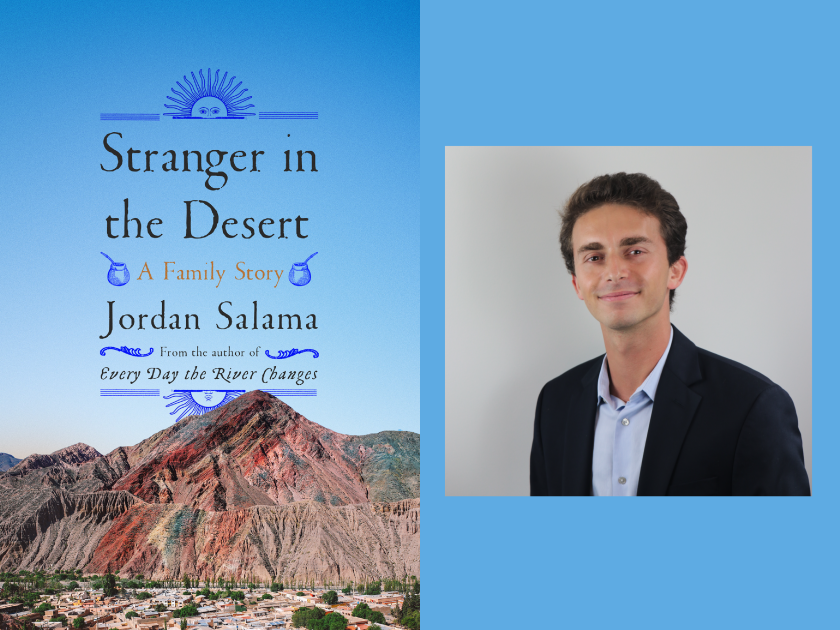
Author photo by Michael Salama
Jordan Salama originally shared his Jewish Book Month reading recommendations with JBC’s email list this past week. Below is the letter.
Dear Friends,
When I was growing up in a large Argentine, Syrian, and Iraqi Jewish family in the New York suburbs, my favorite words to hear were kan ya makan.
Arabic for “once upon a time,” kan ya makan literally means “it happened or it didn’t happen,” or “it was or it wasn’t so.” And in my family, it always meant a story was coming. Maybe that story was an ancient tale from The Thousand and One Nights, or maybe it was a family legend told across the kitchen table.
It didn’t really matter to me. My family had all sorts of stories because they came from all over the world – Jews from Damascus, Aleppo, Baghdad, and Buenos Aires. And they passed these stories down in numerous ways, through writing, art, music, and everyday objects we had around the house. My new book, Stranger in the Desert: A Family Story, chronicles a journey I made across Argentina in search of traces of my great-grandfather (a Syrian traveling salesman in the Andes) and discusses the importance of intergenerational storytelling in communities perpetually faced with our demise. My relatives told these stories so that we would never forget where we came from, and because they knew that Jewish life rests on the stories transmitted by those who came before us.
Here in Argentina, I have found great comfort in Jewish storytelling during these unfathomably difficult weeks for the Jewish community and the world. In the midst of so much fear and grief, I turn to stories as I would a warm blanket, wrapping myself up in the shared humanity that can be found.
I’ve been particularly drawn to works that reflect identity as multilayered, similar to my own heritage — each story, in its own way, bringing me closer to my own family and heritage. Mostly I’ve been reading and rereading Banipal Magazine’s recent special edition entirely dedicated to translated essays, poems, and fiction by Iraqi Jewish writers like Shimon Ballas, Maryam al-Mulla, and Samir Naqqash. There are so few texts in English that represent the emotional complexities of Arab Jewish identity, and this collection is a treasure. Then there’s Sarah Abrevaya Stein’s amazing Family Papers, which pieces together the history of a Sephardic family in the Ottoman Empire thanks to a trove of letters and documents. André Aciman’s stunning Out of Egypt is an all-time favorite of mine that I frequently find myself returning to
I recently came across Susan Lynn Meyer’s fascinating essay “Homesteading Jews.” This reminded me of Javier Sinay’s The Murders of Moisés Ville. Sinay is a great narrative nonfiction writer from Argentina and a friend of mine. When we think of the recent history of Jewish migrations around the world, very often we think of urban spaces. But what about those who set out to make it in more rural areas? These complicated histories have been much less explored, and these two works from opposite parts of the globe each shed light on the subject.
Last, but certainly not least, I want to introduce you to two of my favorite Latin American singer-songwriters, both of whom also happen to be Jewish: Jorge Drexler and Conociendo Rusia (led by Mateo Sujatovich). From Drexler, don’t miss his song “El pianista del gueto de Varsovia” (“The Pianist of the Warsaw Ghetto”) and be sure to look up the translation if you don’t understand Spanish.
May we all find comfort in the stories that make us feel whole, and strive to think critically about how we can make the world a kinder and more peaceful place.
All my best,
Jordan
Jordan Salama is a writer whose work appears in National Geographic, New York Magazine, The New York Times, and other publications. An American writer of Argentine, Syrian, and Iraqi Jewish descent, he is most recently the author of Stranger in the Desert: A Family Story.